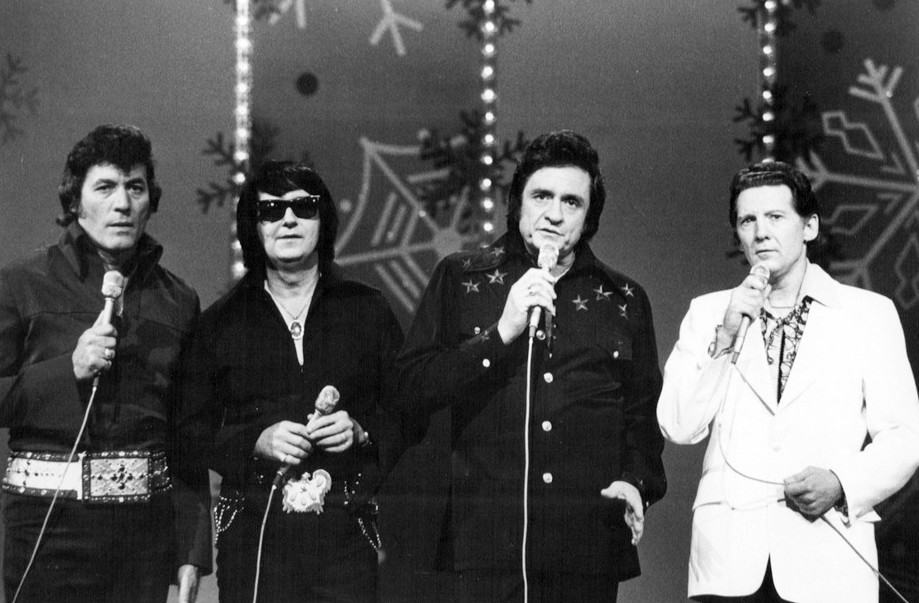He was a mass of contradictions. Renowned around the world as the Man in Black he wrote a religious novel entitled Man in White. He opened for Christian revivals hosted by the Reverend Billy Graham while high on amphetamines. He performed in prisons in the United States and Scandinavia, where he took requests from his audiences, but when performing at the White House he refused to play the songs requested by President Richard Nixon, claiming that he didn’t know the numbers which the president asked him to play. He was inducted into the Halls of Fame for Country Music, Gospel Music, and Rock and Roll, an indication of the broad appeal he had for fans, and the wide range of his musical performances and recordings.
Johnny Cash performed on stage as a musician, in film as a dramatic actor, and on television as the host of variety shows and specials. His name, at least in childhood, was but initials; he was simply J. R. Cash until the Air Force informed him that he could not enlist without a Christian name, so it became John. He gained fame by introducing himself by saying, “Hello, I’m Johnny Cash”. He had several terms in rehab facilities, for alcohol and drugs, run-ins with the law, and a thirty-five year marriage with his second wife, June Carter Cash. He recorded with artists including Carl Perkins, Elvis Presley, Waylon Jennings, Jerry Lee Lewis, Krist Novoselic, Tom Petty, and Mick Fleetwood, to name just a very few. He was on friendly terms with American presidents from Nixon to George W. Bush, including a close friendship with Jimmy Carter.

He was and is an American legend. Say hello to Johnny Cash.

1. He grew up in a New Deal colony in Arkansas
During the Great Depression, efforts by the Roosevelt administration to alleviate agricultural poverty included the creation of colonies to provide economic relief to farmers and farmworkers. Dyess, Arkansas was one such colony. J. R. Cash was three years of age when his family sought help by relocating to the community. The colony was established to allow poor families to work land owned by the state, with the possibility of gaining ownership of the land if they farmed it successfully. Besides the grinding poverty which forced all of his siblings to work the land, the weather was an enemy during the years of the depression, twice flooding the cotton fields destroying the crops. J. R. began working the fields at the age of five.
J. R. was fourth in line of seven siblings, closest to his immediate elder, his brother Jack. Jack was killed when he fell into a table saw, which in that day and time had an unprotected blade, at the age of fifteen in May 1944. Jack survived for an agonized week before he died, and told the young J. R. of seeing angels and Heaven, which had a profound effect on the young Cash. For the rest of his life Cash spoke of looking forward to seeing Jack in heaven. His family was deeply religious, and J. R. was raised in the Christian denomination of Southern Baptist. Taught guitar by his mother and through childhood friends, J. R. was writing his own songs at the age of twelve, heavily influenced by the gospel music of his church and the sounds he heard on radio, including the Irish folk music performed by Dennis Day on the Jack Benny Show.

